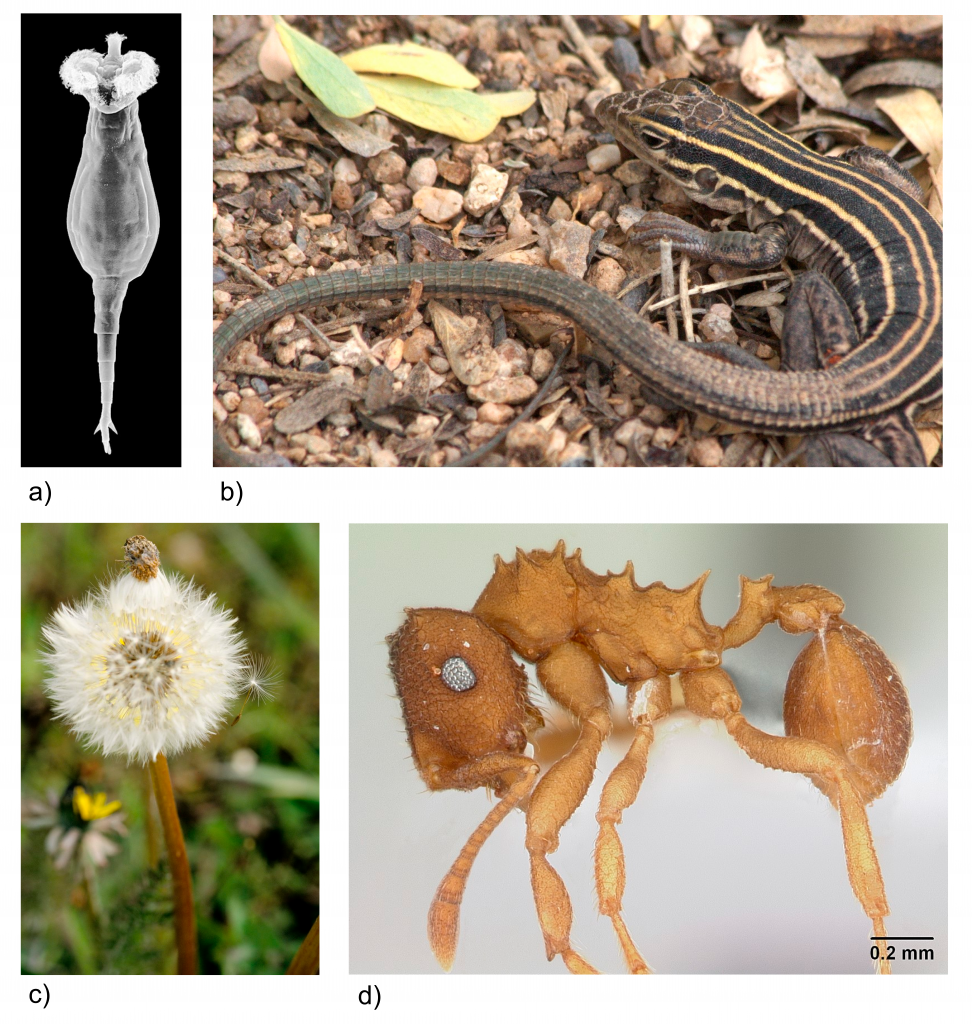7.2 Sex is a Problem
Between the cost of meiosis, the increased risk of disease transmission, and the cash required to buy dinner and a movie, sex is expensive! So why does it exist and why is it the major method of reproduction for multicellular organisms? The short answer to this question is, “nobody knows.” But like most short answers in science, that is not the interesting answer. Of the many hypotheses, a few consistently arise to explain the evolution and persistence of sex: 1) sex speeds up evolution; 2) sex leads to fewer mutations; and 3) sex is an evolutionary race between parasites and hosts.

Does sex speed up evolution?
Several biologists have suggested that the purpose of sex is to speed up evolution. Between meiosis and exchanging gametes with another individual (or outcrossing), the process of sex produces a wide variety of offspring; this variety could potentially speed up the process of evolution.
One key prediction of this hypothesis is that species that evolve quickly have an advantage over species that evolve slowly. Unfortunately, this hypothesis is difficult to test, in that it makes a species-level claim about a mechanism (natural selection) that occurs at the individual level. An individual’s fiercest competitors are those that are closely related and vie for the same resources. So imagine an asexually reproducing population that has a low-frequency variant that reproduces sexually. The sexually reproducing individuals would have to have some sort of advantage over their asexual counterparts. Merely evolving at a more rapid pace does not necessarily give an immediate advantage to those individuals.
Additionally, while it may be true that sexually reproducing populations can change more quickly than asexuals, it does not necessarily follow that this is a good thing. Plenty of successful sexual organisms have changed little across long spans of time. For example, the coelacanth fish that exists today seems nearly identical to fossilized coelacanths that existed millions of years ago (Figure 7.3 and 7.4).


Perhaps the largest problem with the idea that sex exists “to speed up evolution” is the premise that evolution itself is the goal. Change for the sake of change is not the point of evolution. In the case of natural selection, populations change in response to selective pressures. As part of this change, there are winners, to be sure, but there are also many losers.
Check Yourself

